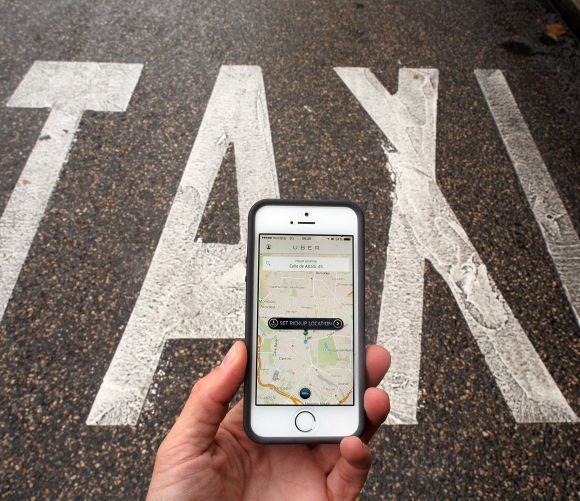Uber says it is engaging with state govt to explain why its business model encourages savings for customers.

App-based taxi hailing firm Uber is running an e-mail campaign explaining that new rules by the Karnataka government curbing surge pricing would increase fares by a third.
The Silicon Valley firm says it is engaging with the state government to explain why its business model encourages savings for customers.
“Since January 2016, Uber riders in Bengaluru would have spent Rs 25 crore more (on rides) if the regulator's pricing model was followed,” said Bhavik Rathod, general manager for South and West at Uber.
Last week, Karnataka had introduced rules governing taxi aggregators such as Ola and Uber, mandating them to register with the local transport authority, set caps on fares and install physical fare meters in taxis.
But Uber wants to educate people of the savings they would get by using its system and influence the government to retain the model.
In the light of Karnataka’s move, co-founder of Infosys Nandan Nilekani said India lacked disruption in transportation due to the absence of a national regulator.
“For transportation the regulator is the state, and the moment a state is a regulator, each of them will have a different thing,” he said at an event in Bengaluru on Wednesday.
The three most disruptive regulators in India are the Reserve Bank of India for banking, the Securities and Exchange Board of India for mutual funds and the Telecom Regulatory Authority of India for telecommunications, all of whom are national regulators, he added.
“Our technology automatically analyses the market for demand and supply and adjusts price. So to ensure that you have a constant supply of vehicles, it's essential to ensure that you do not have a price cap," Rathod said.
"Majority of our rides are cheaper than the government-prescribed prices and surge is just a mechanism to ensure that you have a car every time you want one.”
He said Uber has responded with its feedback on the rules and proposed changes that makes the industry viable for all.
India's taxi-hailing market is estimated to be between $1 billion and $1.2 billion (Rs 6,600 crore and Rs 7,900 crore) in annualised gross booking value in February 2016, according to RedSeer Management Consulting Pvt Ltd, a research and advisory firm that tracks online businesses in India.
Between Uber and Ola, 600,000 drivers ferry 300 passengers each a month on one-way trips, majority of them in large cities such as Bengaluru and Mumbai.
Maharashtra is also planning similar rules to govern taxi aggregators. More states could follow with rules to restrict these aggregators.
For Uber, India is the largest market that is still open for competition.
In China, Uber faces intense competition from local rival Didi Kuadi, which is the biggest player, in a global alliance with firms such as Ola and Lyft.
Ola dominates the Indian market with over 65 per cent share, according to RedSeer.
But Uber, which launched its India service from Bengaluru, has caught up quickly to own the remaining share.










